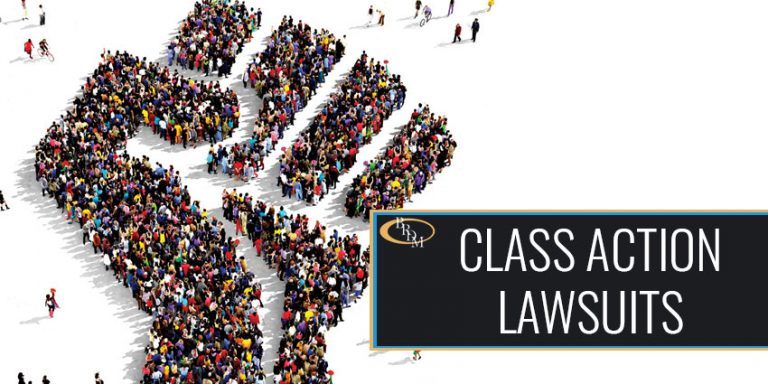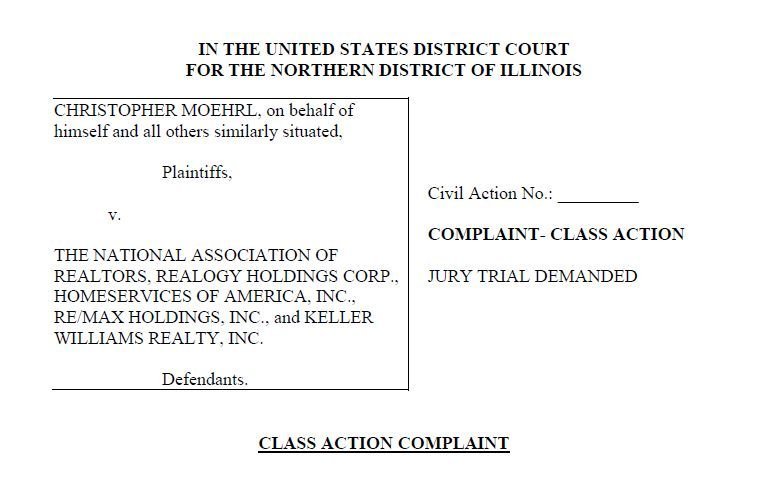Insights into the Future FinTech Class Action Lawsuit: Remain Informed
Wiki Article
Demystifying Course Action Legal Actions: A Closer Consider Legal Proceedings
Class activity claims can be intricate and intimidating, typically shrouded in a veil of mystery for those unfamiliar with the legal procedures included. Getting a deeper understanding of these legal actions is vital, as they serve as an effective device for individuals to look for justice and hold firms responsible. In this discussion, we will debunk class action suits, taking a better look at the various facets of the lawful proceedings. From understanding the requirements for class activity qualification to the duty of course agents, and from the procedure of class certification to the resolution of these legal actions, we will untangle the intricacies and clarified the internal operations of this legal system. Let's dive right into the globe of course activity lawsuits and discover the intricacies that lie beneath the surface.Recognizing Class Activity Suits
Recognizing Course Activity Legal action calls for a thorough examination of the lawful procedures involved in collective lawsuits. Course activity suits are a sort of lawsuit where a team of people with similar cases or complaints collaborate to initiate a lawsuit versus an usual offender. This kind of litigation permits people with restricted sources to jointly look for justice, as it integrates the stamina of multiple private claims into a solitary lawsuit.The process begins with the identification of a lead complainant or course rep that files the initial grievance in support of the whole course. The court then establishes whether the case fulfills the demands for course accreditation, that include commonness, numerosity, typicality, and adequacy of representation. If licensed, the court notifies potential course participants, providing them an opportunity to opt-out if they want to pursue their cases independently.
Once the course is accredited, the lawsuits proceeds through numerous stages, including exploration, motion technique, and, if essential, trial. The result of the lawsuit can cause a settlement or a judgment, which is binding on all class participants unless they pick to opt-out. Course activity legal actions can include a variety of legal issues, such as customer protection, securities fraudulence, work discrimination, and environmental harm.
Understanding the subtleties of course action lawsuits is important for both defendants and complainants associated with cumulative litigation. It calls for a detailed understanding of the legal needs for qualification, the rights and commitments of course participants, and the prospective benefits and threats connected with pursuing or protecting versus course action insurance claims.
Identifying Course Activity Eligibility
To identify whether a lawsuit certifies as a course activity legal action, specific standards need to be met. These criteria are created to ensure that the case can appropriately stand for the rate of interests of a huge team of individuals that have suffered comparable harm or have actually been affected by the same problem. The key consider identifying class activity qualification is the visibility of a typical inquiry or issue that impacts all prospective class participants.First of all, a course activity suit needs numerosity, which implies there have to be a substantial variety of potential class members included. This makes sure that a course action is a reliable method to deal with the cases of a big team of individuals, as opposed to having everyone file a private lawsuit.
Second of all, there need to be commonality amongst the claims of the possible class participants. This means that there need to be a common concern of regulation or truth that is main to the case. If each possible class member's case is special and unrelated to the others, a course action may not be proper.

The Role of Course Representatives
Class reps play a vital function in class activity lawsuits by representing the passions of the entire class. These people are picked from within the class to serve as the general public face of the legal action and are in charge of choosing in support of all class members. The duty of course reps involves numerous obligations and duties throughout the legal procedures.
One of the key responsibilities of class reps is to supply details and assistance to their fellow course participants. They offer as a factor of get in touch with and interaction in between the class members and the lawyers representing them. This includes keeping the class participants informed around important updates, addressing their inquiries, and addressing any worries they may have.
Course agents also have the responsibility to actively join the litigation process (Future FinTech class action lawsuit). This includes working carefully with the lawyers to establish legal strategies, collecting evidence, and giving testimony if needed. They need to be actively entailed in all aspects of the instance to ensure that the ideal interests of the entire class are stood for
Additionally, course representatives are in charge of authorizing negotiations or other resolutions gotten to in the claim. They must thoroughly assess the regards to the negotiation and decide that is in the finest rate of interest of the entire their website course. This decision-making procedure requires mindful factor to consider and consultation with the class members.
The Process of Class Qualification
The procedure of certifying a course in a course action legal action involves an extensive analysis of specific requirements to identify if the instance meets the needed demands for class accreditation. Course certification is an essential action in the litigation process as it determines whether a claim can continue as a course activity, permitting a large group of individuals with comparable cases to be stood for collectively by one or a few people.To acquire class qualification, the complainant needs to show that the proposed course satisfies particular requirements. Typicality requires that the cases or defenses of the course representatives are common of those of the class. Adequacy of representation makes sure that the class agents will relatively and adequately shield the passions of the class.
If the recommended course fulfills the required requirements,The court will certainly inspect these standards and the plaintiff's proof to establish. The court may additionally think about various other variables, such as whether a class action is the premium approach to deal with the dispute and whether the course is sufficiently cohesive.

Once the court gives class certification, the lawsuit can proceed as a course action, permitting the plaintiffs to jointly seek alleviation and possibly obtain a judgment or settlement that profits the entire course.
Resolving Class Action Legal Actions
As soon as course accreditation has actually been approved, the next action in settling a course action suit is to navigate the procedure of litigation or settlement negotiations. Lawsuits refers to the lawful procedures in court, where the complainant's attorney provides evidence and debates to support their insurance claims, and the offender's lawyer counters with their own proof and disagreements. This process can involve various phases, such as pretrial activities, discovery, and test. Throughout pretrial movements, both celebrations may submit motions to dismiss the situation or slim down the issues in opinion. Exploration allows each side to gather proof and info from the other celebration via techniques such as document interrogatories, demands, and depositions. If the instance proceeds to test, both parties present their case before a court or court, that will then choose the result.On the other hand, negotiation arrangements include conversations in between the events to get to a mutually acceptable resolution without going to trial. Negotiation supplies might be made at any kind of phase of the litigation procedure, and if both events agree, a negotiation contract is reached.
Conclusion
Finally, course activity suits play a vital duty in supplying justice and settlement to large teams of people who have been harmed by the same entity. By licensing a course and selecting course agents, the legal process becomes more reliable and easily accessible for the plaintiffs. Managing these lawsuits can be a complex and lengthy procedure, but it is essential in holding companies answerable for their activities and making sure fair results for all affected events.From comprehending the requirements for class action qualification to the duty of course agents, and from the procedure of class accreditation to the resolution of these suits, we will certainly unwind the intricacies and shed light on the internal workings of this legal mechanism. The key factor in recognizing course activity qualification is the presence of a typical inquiry or issue that influences check out this site all possible course participants.
If each prospective course my blog participant's insurance claim is unassociated and one-of-a-kind to the others, a class activity might not be ideal.
Course reps play a critical duty in class activity suits by representing the rate of interests of the whole class.When course accreditation has actually been given, the next action in dealing with a course action claim is to browse the process of lawsuits or settlement arrangements.
Report this wiki page